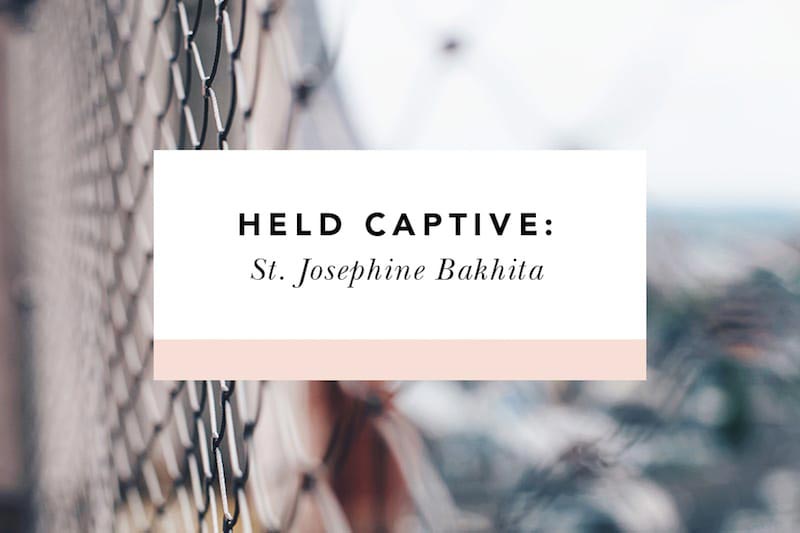
In my former job, I accompanied groups of young adults to the U.S./Mexico border each year. The point of the trip was to serve as a pilgrimage to learn what it looks like in the only place in the world where “first-world” and “third-world” conditions share a border.
Our group spent time on both sides of the border and spoke at length about a variety of issues. One theme that consistently arose was the complex relationship between factories, their workers, and the market creating a demand for fast, cheap goods.
The Dignity of Work and the Dignity of the Human Person
Inevitably someone would ask the question: “Do we boycott the companies that pay unjustly and don’t maintain safe working conditions?” And always the complicated answer came back: “No. Call or write letters to the companies encouraging fair labor practices and support companies who support their workers. But we need the jobs.”
There is an unfortunate but certain need for employment in areas where labor comes cheap that creates a sense of desperation in folks who wish support their families. This is particularly the case in regions where working conditions are poor and human rights violations are high. So much so that very often these folks will endure unsafe, unjust working conditions in hopes of a chance to survive and support their families.
These are the types of circumstances that can cause individuals to fall victim to schemes of human trafficking (forced labor or sex). This is not unique to any one place on the globe. It is a weakness that has been exploited for millennia, no more profitably that it is at this point in history. It is estimated by the U.S. Department of Homeland Security that “human trafficking generates $32 billion in illegal profits per year around the globe, second only to drug trafficking" (source).
St. Josephine Bakhita, Slave
Today is the International Day of Prayer and Awareness Against Human Trafficking. It is intentionally combined with the feast of St. Josephine Bahkita, a native of Sudan who was bought and sold as a slave multiple times throughout her life.
This is not a memorial that is remembered for its historical significance. Rather, it is because the practice of slavery remains as much or more of a rampant violation of human dignity to this day. St. Josephine’s story speaks hope into hopeless circumstances.
Ironically the name “Bahkita” in Arabic means "lucky"—a name given to St. Josephine after her many abductions caused her to forget her own name. She took the name Josephine upon joining the Conossians in Italy—a group of religious women who Bahkita had stayed with while her owners moved to Sudan.
When the family came to collect Bahkita, she refused to leave. The exchange between Bahkita, the family who intended for her to accompany them, and the sisters took three days. Eventually, an Italian court ruled that because Sudan had outlawed slavery before Bahkita's birth, and the Italians did not recognize slavery, by law Bahkita had actually never legally been a slave. In other words, she was free to speak for herself (and to join the order that she had chosen).
What We Can Learn from Her Story
I feel far from equipped to speak on issues of slavery or human trafficking, or what this experience of liberation must have been like for St. Josephine or anyone who has undergone such an exile. Without undermining the seriousness of her experience with a pat answer to a complex and heart-wrenching practice, there is a part of her story that feels like an invitation for further consideration. Where I resonate with this story is in her discovery and experience of finding herself freed from the clutches that never had true ownership over her, anyway. She must have felt so many intense emotions all at once: relief, gratitude, anger, joy, disbelief.
For those who have had a life-altering conversion, who have attended a timely retreat, who have put in long hours with a counselor or spiritual director, who have faced an addiction head-on, you might recognize the wild freedom that is coming to terms with something/someone who has oppressed you, and finding they no longer have a hold in your life.
Josephine Bakhita's witness is a lived metaphor for what Jesus has already done in us. There is no circumstance, habit, secret, or shame we may find ourselves in the clutches of that hasn’t already been satisfied by the Blood of our Savior. Our hope is in the One who has suffered, died, and rose out of love for us, who is inviting us into a place of freedom.
St. Josephine Bakhita and Human Trafficking
Lent begins in less than a week. Maybe the patroness of Sudan and of those affected by human trafficking is a fitting companion for this year’s Lenten journey. Perhaps something in her story has stirred a new sense of courage to journey into the desert and to acknowledge what has wittingly or unwittingly held us captive—that we might choose again for ourselves the One who invites us back into the freedom of unconditional love.
Prayer and Action
If you want to learn more about human trafficking and how you can help, here are some resources:
- This is a great visual to help understand the problem and our (unintentional) role in it.
- Support companies that make an effort to label their product that has been made justly. Check out the USCCB’s 2017 Lenten action for spotting slave-free seafood.
- 15 ways you can help fight human trafficking.
- Learn from the U.S. Catholic Sisters Working against Human Trafficking.
Held Captive: St. Josephine Bakhita + Human Trafficking #BISblog //Click to tweet































